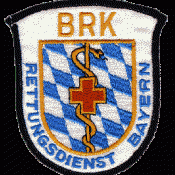Search the Community
Showing results for tags 'Ethics'.
-
I'm posing this question in the form of a scenario. It's based on real events, but obviously I had to change some details to protect various people's privacy. You are an EMT-A working with an EMT-Paramedic. You're relatively new to the service you're working with, and the medic is someone who's been around for quite a while. You're working in a rural community with limited resources, and it's been yet another slow tour for you and your partner, who together form the only ALS crew in the region. You are called to back up a BLS ambulance responding for a 30 year old female, 9-echo (Cardiac arrest, CPR in progress). Collapse was witnessed, and compressions were performed by family for approximately 9 minutes prior the BLS crew's arrival, at which point the monitor was attached, V-Fib was recognized, and one shock was delivered. V-fib continued, and compressions resumed, and that's when you and your "ALS" partner showed up. Being an EMT-A, you recognize that the Paramedic is calling the shots now and assume a supportive role. Good quality CPR and ventilation is maintained, IV's are established, and coarse V-fib continues despite one round of Epi and another defibrillation attempt. It's been about 20 minutes since collapse, and the family is standing nearby watching you attempt to revive their wife/mother, and they are increasingly distraught by the events unfolding. It is at this point where things start to unravel. Your paramedic partner looks at the coarse, obvious V-Fib showing on the monitor, and requests you to draw up Atropine... "Do you mean Amiodarone?", you ask quietly. He retorts with a glare, and absolutely insists that Atropine be drawn. This is an easy task to accomplish, as the Atropine you carry is in a preload syringe. You reluctantly pass it to the medic, who proceeds to push the drug slowly into the patient. Fibrillation persists. 5 minutes later another dose of Atropine is given. No change. A little over 30 minutes into the arrest and the third shock is delivered, at which point the patient goes into asystole. Upon seeing this, the medic determines that no further medications are to be given, and that transport should be initiated to the closest facility (about 30 minutes away). Compressions are continued, but no further electrical activity is restored enroute, and all measures are ceased shortly after arrival at the care center. So my question to you is this; being the EMT-A in this scenario, at which point do you interject and voice your concerns over blatantly poor decisions and errors made by your "superior" who's running the call? Bare in mind the setting of this scenario, and the fact that all communication on scene can be easily overheard by the patients family. Do you say anything on scene? Do you address the matter afterwards, or in private? Or do you just assume that your partner knows something that you don't, and move on. And what do you do in other situations when a partner that "outranks" you makes a Tx decision on scene that you absolutely disagree with (morally or clinically)? I'd really appreciate your thoughts on this...
-
What do YOU do, when you're called to someone assumed to lay sick behind the closed front door? Just had a call yesterday, that left a citizen with a broken window, a crashed flower pot, a lot of firefighter's footsteps in the house and several opened & searched beds/closets. The adrenaline vapor may be vanished meanwhile. So I just thought the whole way back to the station, that this would be a nice small scenario here... Specifics (just from reality): thursday afternoon, clear sky, summer, but not very sunny, not rainy dispatch gives "sick person laying behind the closed front door" and address (a single brick house with cellar, ground floor, first floor) your team: ALS first responder unit (1 paramedic, 1 EMT) from neighbouring village with ETA 5 minutes (no transport) other, medical: 1 ALS ambulance (2 paramedics) with ETA ~10 minutes on the way other, technical: local volunteer fire department of the same village few minutes away, coming with two engines, 10 staff including local fire chief. other, law enforcement: police tries to find some available officers, next is more than 20-30 minutes away You arrive short after fire department. Two fire trucks are on the street in front of the fenced garden, blocking the access to the driveway. Some firefighter awaits you and tells you instantly to drive your first responder car further away, because there's an ambulance coming. What would you do from now on...?


